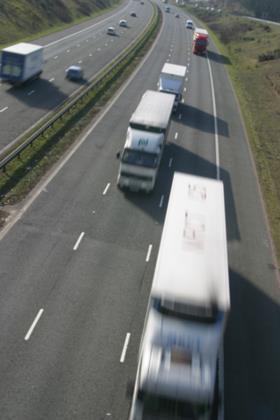
The FTA has criticised EU negotiators for not prioritising frictionless trade enough in Brexit negotiations, warning of the costly impact of additional customs checks.
The Freight Transport Association (FTA), which represents more than 17,000 of the UK’s logistics businesses, expressed concern that frictionless trade is not sufficiently at the centre of EU leaders’ negotiating position after Britain and the EU agreed a Brexit transition deallast week.
The trade body urged both negotiating teams to consider the economic impact effect of potential delays, both in the UK and Europe, and it called on negotiators to prioritise the scrapping of potential barriers as negotiations on the future trade relationship get under way.
The association said the guidelines adopted by the European Council “open various avenues for potential customs and regulatory solutions”, but it anticipates that controls and checks on both sides of the border between the UK and EU will be unavoidable.
With UK exports to the EU worth more than £240 billion, and imports exceeding £320bn, logistics delays between countries will increase costs, FTA warned. This would ultimately make goods and services more expensive to the end user and it is something FTA has been lobbying hard to avoid.
In addition, the association said the transition deal does not go far enough in providing guarantees to businesses looking for reassurance on future trading arrangements, adding that the outcome could be damaging to deeply integrated supply chains, which often rely on just-in time production processes.
“Goods moves seamlessly across our borders today, with only minimal customs checks and no need for lengthy inspections at the borders that can delay the process,” said FTA’s deputy chief executive James Hookham.
“Even a small delay of two additional minutes per truck could result in tailbacks of 29 miles or 47 kilometres at the borders during peak hours, as demonstrated last week in research published by London’s Imperial College. This would create uncertainty and potential damage to deeply integrated and time sensitive supply chains.
“Throughout the negotiating process to date, FTA has been very clear on the need to ensure no barriers to trade with the European Union, and this includes checks imposed on trade at the border, as well as non-tariff barriers and red tape for traders and logistics companies alike.'
Given the uncertainty of the situation, Hookham added that logistics operators, retailers and manufacturers sbhould 'continue to plan with caution'.



